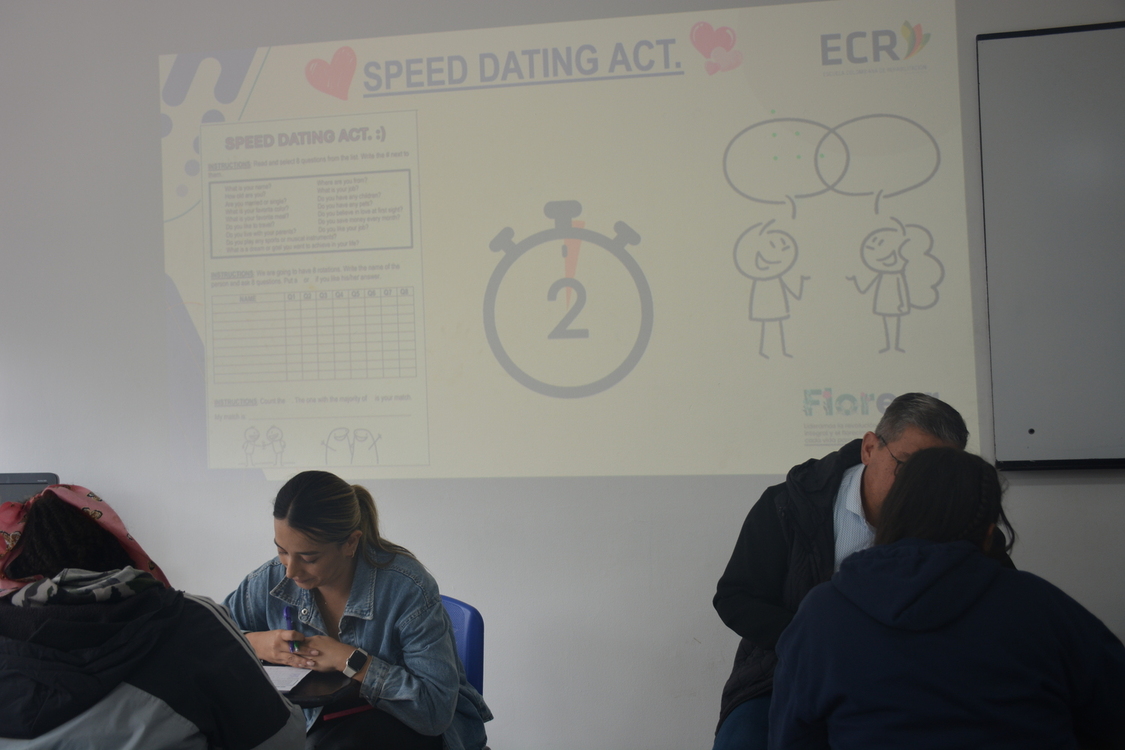At Escuela Colombiana de Rehabilitación (ECR), English is more than just a language—it’s a bridge to opportunity. Whether you’re a teacher preparing for global research, an administrative staff member supporting bilingual processes, a student seeking international connections, or a friend of the institution curious about new learning paths, learning English opens doors to professional growth, cultural exchange, and lifelong learning.
This September, ECR’s teachers and administrative staff will take the English Placement Test—a key step in strengthening our collective language skills. However, learning does not end with the test: thanks to digital tools, you can continue to practice English anytime, anywhere.
Practice English Anytime: Digital Tools That Work for You
Not everyone has time to attend in-person events or go to class at a language center, and that is okay. With today’s technology, you can practice English from anywhere—your desk, on your commute, or even during your lunch break. Here are two powerful platforms that make learning English flexible, effective, and enjoyable.
Babbel: Learn with Structure and Simplicity
If you are looking for organized and effective learning, Babbel is a top choice. With lessons designed to last just 10-15 minutes, it is easy to stay consistent and keep improving your skills through practice. You will be able to choose your level, focus on specific skills like grammar or vocabulary, and track your progress over time.
On this app, you will find the following key features:
- Short, practical lessons for busy schedules
- Organized learning paths from beginner to advanced levels
- Real-life dialogues and pronunciation practice
Whether you’re trying to remember basic vocabulary and structures or preparing for professional communication, Babbel helps you build a strong foundation. It’s especially useful for ECR staff and faculty who want to improve their English for academic and administrative tasks.
Ready to begin? Visit Babbel’s official website and start your journey today.
Duolingo: Turn Learning Into a Game
For those who prefer a playful approach to learning, Duolingo is a go-to app. With colorful visuals, interactive exercises, and friendly reminders, Duolingo turns language learning into a daily habit that feels more like a game than a chore.
Why it works
- Most features are completely free
- Available on mobile and desktop
- Exercises for vocabulary, grammar, listening, and reading
Bonus: The Duolingo English Podcast offers real-life stories in English with Spanish explanations and transcripts to help you follow along and increase your vocabulary.
Duolingo is ideal for learners of all levels, especially those who enjoy taking their time to study on their own. It’s a great way to build confidence and reinforce what you’ve learned in class or through other platforms. Explore Duolingo at www.duolingo.com or listen to the podcast on your favorite streaming service.
Learning and Growing Together at ECR
At ECR, we believe that learning English is a shared journey. It is not only about passing a test, but also about broadening our horizons, improving our communication, and connecting with the world. Whether you’re preparing for academic research, supporting bilingual students, or simply curious about new cultures, English empowers you to want to know more.
Here’s how these tools can support our community
With technological tools like Babbel and Duolingo, you can integrate English into your daily routine without interfering with your busy schedule. Whether you prefer structured lessons or spontaneous practice, there is a path for you.
English is more than a skill—it is a gateway to new ideas, new people, and new possibilities. At ECR, we’re proud to foster a community where everyone feels welcome to learn, grow, and thrive.
Take the Next Step
Let’s make English part of our everyday lives. Let’s build confidence, share knowledge, and open doors – together at the Escuela Colombiana de Rehabilitación.
Escrito por:
Componente Comunicativo de Ciencias Transversales de la ECR





